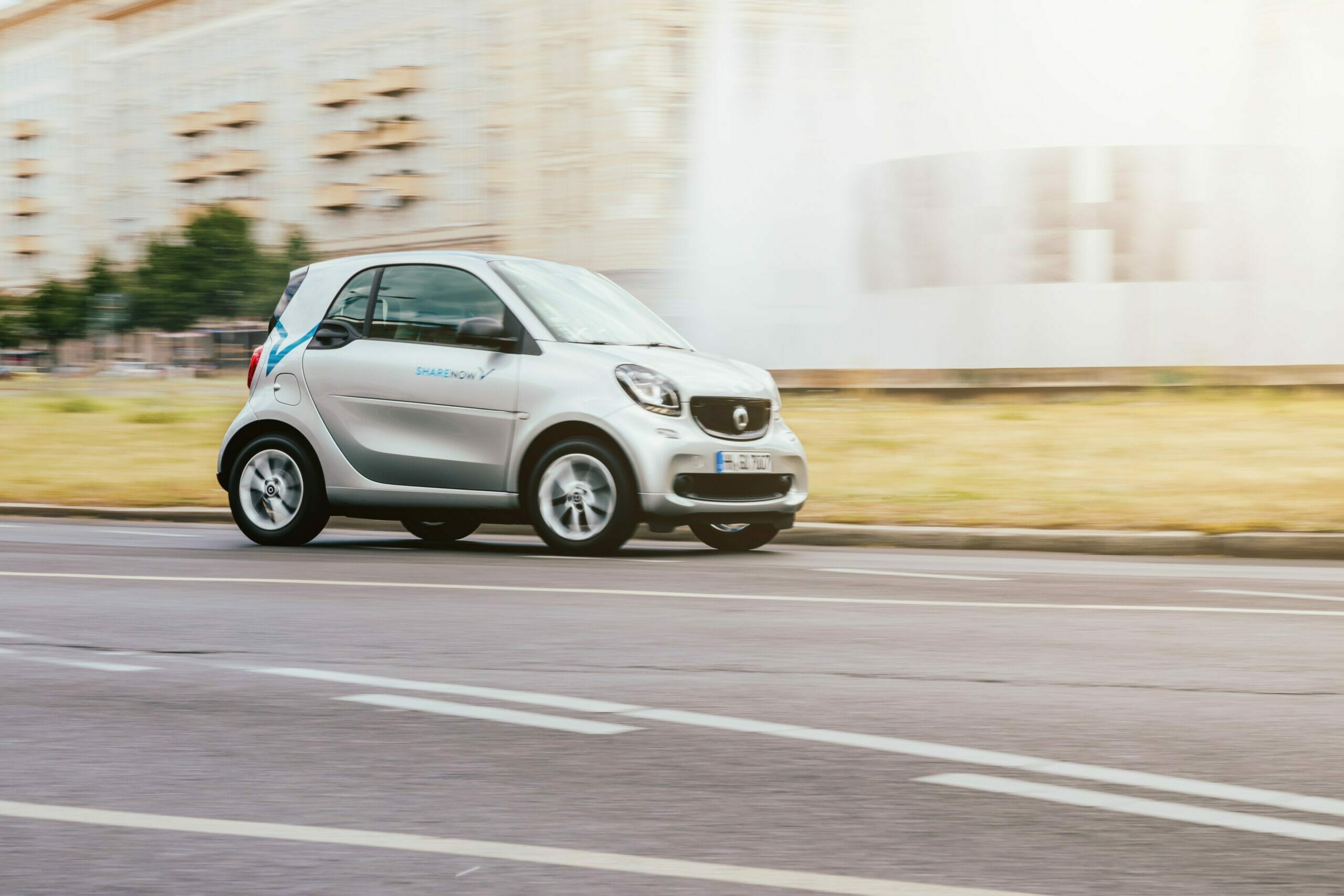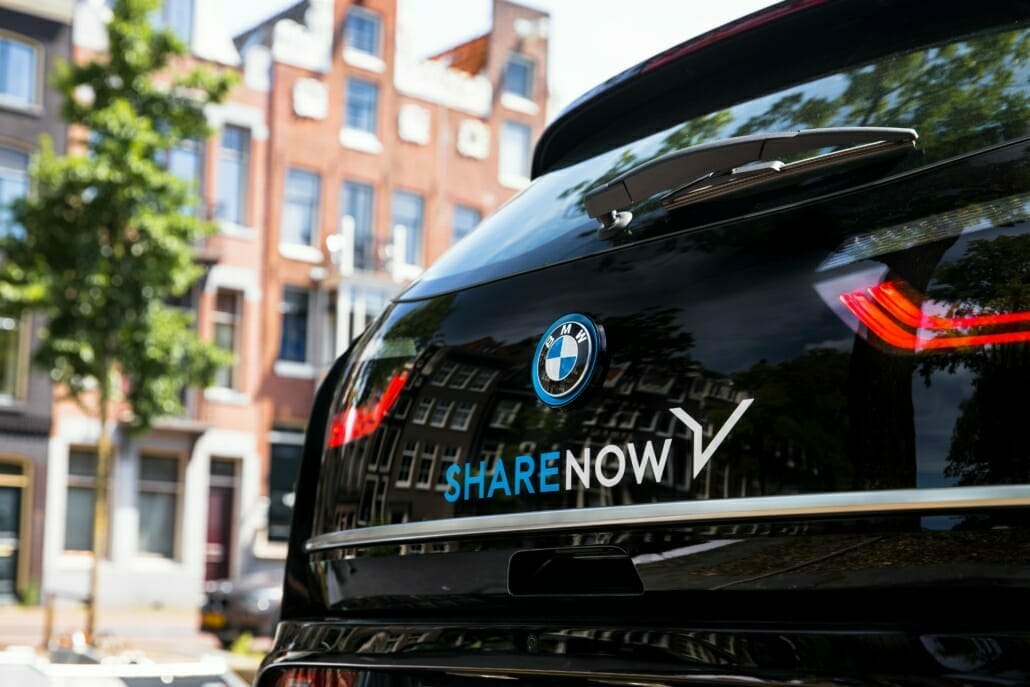Car sharing in Germany

In today’s fast-paced world, urban mobility has become a pressing concern, with cities grappling to find sustainable solutions to the ever-increasing challenges of traffic congestion, pollution, and limited parking spaces. One innovative concept that has gained significant traction in recent years is car sharing. As an environmentally conscious and economically viable alternative to traditional car ownership, car sharing has revolutionized the way people navigate cities in Germany and beyond.
Car sharing offers individuals the flexibility of using a car when needed, without the burdensome costs and responsibilities of owning one. By joining a car-sharing program, urban dwellers gain access to a fleet of vehicles strategically stationed throughout the city, available for short-term rentals on an hourly or per-kilometer basis. This shared mobility model not only reduces the number of private vehicles on the road but also promotes efficient use of resources, making it a sustainable and forward-thinking solution for urban mobility challenges.
What is CarSharing?
CarSharing is a modern and innovative concept that offers an alternative to traditional car ownership. With CarSharing, you don’t own the car yourself but share it with others. The vehicles are usually owned by the CarSharing provider, and customers sign a framework agreement with the provider upon registration. This agreement allows customers to independently book any of the provider’s vehicles at any time, providing flexibility and convenience.
Booking a CarSharing vehicle is simple and can be done through the provider’s website, mobile app, or switchboard. Once booked, customers can access the vehicle using a chip card or their mobile phone. The keys are typically found inside the car, although some providers use key safes located near the vehicle for added convenience.
One of the advantages of CarSharing is that you only pay for the actual use of the vehicle. All costs, including fuel or electricity, are included in the fare. After the journey, most providers send customers an email detailing the expenses incurred, and payment is typically made through direct debit from the customer’s account. The CarSharing provider takes care of insurance, car maintenance, workshop visits, MOT inspections, tire changes, and other obligations, ensuring a hassle-free experience for customers.
CarSharing providers offer a variety of vehicle sizes to cater to different needs, including small cars, sedans, station wagons, and vans. These vehicles are strategically stationed near customers’ homes and workplaces, making them easily accessible.
For many households, CarSharing proves to be more economical than owning a car, especially for those who travel less than 10,000 kilometers per year. By embracing CarSharing, individuals can enjoy the convenience of having access to a vehicle without the financial burdens and responsibilities of ownership.
As of January 1, 2023, a total of 4,472,800 authorized drivers were registered for CarSharing in Germany. A total of 33,930 vehicles were provided by 249 CarSharing providers in 1,082 cities and municipalities.

Advantages of car sharing in Germany
Car sharing has gained significant popularity in Germany as a sustainable and convenient mode of transportation, particularly in urban areas. This innovative concept offers numerous advantages that contribute to a greener and more accessible future:
As the demand for sustainable and efficient mobility solutions continues to rise, car sharing has emerged as a game-changer, reshaping the way we think about transportation in urban areas. Its positive impact on the environment, cost savings, and community engagement make it an attractive option for individuals seeking a greener and more accessible future.
Car sharing options in Germany
Car sharing has evolved to offer different options to cater to various user preferences and needs. Two popular variants of CarSharing have become established: station-based CarSharing and free-floating CarSharing. Additionally, combined CarSharing services have recently emerged, combining the advantages of both variants.
In station-based CarSharing, vehicles are parked in designated parking lots. Customers can pick up the car from these fixed locations and return it after their trip. This option is ideal for users who desire the reliability of having a vehicle provided in their vicinity without the burden of ownership. Station-based CarSharing is typically the most cost-effective option, with prices ranging from approximately 4 to 8 euros per hour, including fuel. Reservations can be made several weeks in advance, providing convenience and peace of mind.
On the other hand, free-floating CarSharing allows users to locate and book available cars using a smartphone. After the trip, the car can be parked anywhere within the designated use area. This option is available primarily in larger cities and offers flexibility for spontaneous trips or situations where the exact end time is uncertain. One-way trips within the city are also possible with free-floating CarSharing. However, it’s important to note that reservations in advance are not possible, and the availability of free-floating vehicles may vary. Prices for free-floating CarSharing are typically higher compared to station-based CarSharing, ranging from approximately 17 to 20 euros per hour.
To provide a more comprehensive and flexible CarSharing experience, combined CarSharing services have emerged. These services offer both station-based and free-floating vehicles from a single provider. Users can enjoy the advantages of both variants, with the convenience of reserving station-based cars in advance and the flexibility of using free-floating vehicles for spontaneous trips. In the combined model, free-floating cars are generally priced similarly to station-based ones, providing affordability and versatility.
Currently, combined CarSharing services are available in cities such as Hanover, Osnabrück, Frankfurt am Main, Mannheim, Heidelberg, Kiel, and Bremen, Freiburg, München, Berlin, Köln. These offerings provide users with a wider range of options to suit their specific mobility needs and preferences.
Other forms of shared car use in Germany
Apart from traditional car-sharing models, there are other forms of shared car use that offer unique benefits and considerations. Peer-to-peer CarSharing allows private individuals to offer their own vehicles for sharing through online platforms or neighborly arrangements. Unlike regular car-sharing, this variant lacks standardized contractual regulations, and each rental transaction requires a new contract. As a result, peer-to-peer CarSharing is more akin to car rental rather than traditional CarSharing.
One drawback of peer-to-peer CarSharing is the potential lack of reliability. Vehicle owners have the discretion to deny access to their cars or withdraw their commitment at any time. In a 2015 test conducted by Stiftung Warentest on commercial peer-to-peer providers, it took 22 attempts to successfully rent a vehicle. However, providers are continuously refining their business models, and the future may witness the emergence of more robust and reliable private car-sharing options.
RideSharing is another form of shared car use where individuals offer rides to others in their private vehicles. This concept does not involve contractual regulations or guarantee the availability of free rides. Additionally, the proximity of available vehicles near residential or work areas is not predictably regulated. However, ride-sharing can be particularly beneficial for efficient travel on frequently used routes and during high-traffic periods, such as urban rush hours.

Popular Car Sharing Apps in Germany
Car sharing has become increasingly popular in Germany, offering individuals a flexible and convenient way to access vehicles without the burden of ownership. With the advancement of technology, car sharing has been made even more accessible through the use of dedicated mobile apps. These apps provide seamless booking, vehicle access, and payment processes, making car sharing a breeze. Here are some of the most popular car sharing apps in Germany:
Share Now (formerly car2go and DriveNow)
Share Now is one of the largest car sharing providers in Germany. Their app allows users to locate and reserve vehicles nearby, access the car using the app, and start their journey. Share Now offers a range of vehicles, including compact cars and electric vehicles, providing users with a variety of options to suit their needs.
Flinkster
Flinkster is a car sharing service provided by Deutsche Bahn, Germany’s national railway company. Their app allows users to find and book vehicles from their extensive fleet, which includes cars, vans, and electric vehicles. Flinkster is particularly convenient for those looking to integrate car sharing with other modes of transportation, as many Flinkster vehicles are located at train stations.
cambio
cambio is a cooperative-based car sharing provider that operates in various cities across Germany. Their app enables users to find available vehicles, book them for a specific duration, and unlock the car using the app. cambio offers a range of vehicle types, from small cars to larger options for those needing more space.
Sixt Share
Sixt Share is the car sharing service offered by Sixt, a well-known car rental company. Their app allows users to quickly locate and reserve vehicles, including sedans and SUVs, for short-term usage. Sixt Share offers flexible pricing options, including hourly and daily rates, making it suitable for both short trips and longer journeys.
Getaround
Getaround is a peer-to-peer car sharing platform that connects car owners with individuals in need of a vehicle. Their app enables users to find available cars in their area, book them for a specific period, and unlock the car using the app. Getaround offers a wide selection of vehicles, ranging from compact cars to luxury models, providing users with a diverse range of options.
These car sharing apps have revolutionized the way people access and utilize vehicles, offering convenience, flexibility, and cost savings. By simply downloading the app and creating an account, users can gain access to a network of vehicles and enjoy the benefits of car sharing with just a few taps on their mobile devices. Whether you need a vehicle for a quick errand or a longer journey, these car sharing apps make it easy to find and book the perfect car for your needs.
German Cities with the best car-sharing offerings
Karlsruhe has the highest density of car-sharing per capita in Germany. According to the Bundesverband CarSharing e.V., which determines the number of car-sharing vehicles in German cities every two years, Karlsruhe has 4.3 car-sharing vehicles available per 1,000 residents. Since 2019, Karlsruhe has been the car-sharing capital of Germany. Following closely behind in 2nd to 4th place are the major cities of Munich, Berlin, and Hamburg, each with approximately two to 1.9 car-sharing vehicles per 1,000 people.
However, high car-sharing availability is not limited to metropolitan areas. Freiburg ranks fifth with 1.8 car-sharing vehicles per 1,000 residents, despite having only around 230,000 inhabitants. Among the 20 cities with the highest car-sharing density, eight have populations of less than 250,000.
As of January 1, 2023, car-sharing vehicles are offered at 1,082 locations, which is an increase of 147 compared to the previous year.
Station-based car-sharing is the most widespread model and is available in virtually all car-sharing locations. It includes large commercial providers as well as organizations that voluntarily organize vehicle sharing in rural areas. Free-floating car-sharing was available in 34 cities in 2022, with Munich, Berlin, and Hamburg having the highest density. Combined car-sharing offerings exist in 23 German municipalities.
While most cities primarily rely on station-based systems, Munich, Berlin, Hamburg, Cologne, and Düsseldorf have more free-floating cars than station-based ones. The number of cities with combined car-sharing options has also increased. In addition to Karlsruhe, other cities such as Heidelberg, Darmstadt, Frankfurt am Main, and Leipzig offer combined car-sharing solutions.

E-scooter rental – sharing providers, costs & availability
Getting around with an e-scooter is now as easy as renting one. Since the legalization of electric scooters in Germany, these convenient vehicles can be found on every corner of major cities. Each city typically has 4-6 different e-scooter sharing providers, offering a variety of designs, availability, and equipment.
E-scooter rental costs are standardized across all providers in Germany. The initial unlocking cost is 1 Euro, and after that, you are charged 0.15 euros per minute. The rental fees are not dependent on the distance traveled but are calculated based on the rental period.
It is worth noting that e-scooter sharing providers may adjust their prices in the future. If there are any changes, we will provide a detailed list of costs per provider.
In the competitive market, e-scooter sharing providers offer various vouchers and promotions to attract customers. These can include free rides or additional minutes of free driving with coupons and promotional codes. The specific offers vary among providers.
E-scooter rental – insurance
One crucial aspect that is often overlooked is insurance coverage. If you cause damage to another person or yourself while riding an e-scooter, you are personally liable for it. It’s essential to ensure that your personal liability insurance covers such incidents. However, insurance coverage can vary among different e-scooter providers. Therefore, it is recommended to obtain detailed information directly from your chosen e-scooter provider.
When using your own e-scooter, having e-scooter insurance is a must. However, when renting from a sharing provider, it may not be urgently necessary. Nonetheless, it is advisable to seek more information from the specific company beforehand to understand the insurance coverage provided during your rental period.



